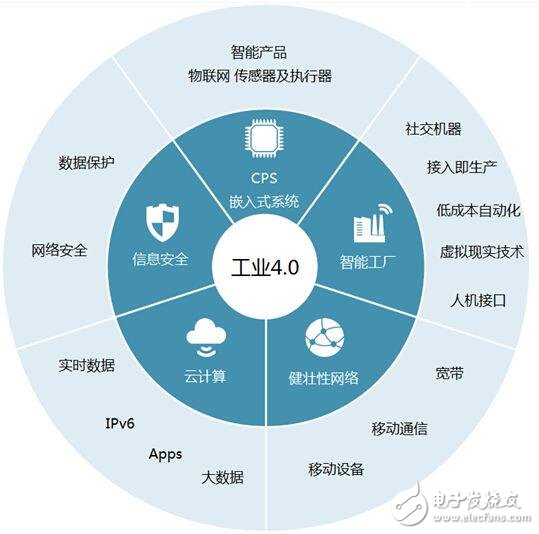Which are the segments of Industry 4.0?
"Made in China 2025" mainly focuses on industry and policy, and "Industry 4.0" mainly focuses on technology and model, so it is not the same. However, there is one thing in common, that is, smart manufacturing.
In "Industry 4.0", we must first build a smart factory and deploy sensors in production equipment to make it an intelligent production tool. Thereby achieving plant monitoring and control intelligence. In the future smart factory, the product parts themselves are accompanied by corresponding information, which will directly communicate with the production system and production equipment according to their own production requirements, and convey the operation instructions of the required production process until the production equipment will produce itself. At the same time, in the manufacturing process, flexible production is realized by dynamically configuring production resources, thereby making the manufacturing process more efficient, resource allocation more reasonable, and the product production cycle shorter and more personalized.
"Made in China 2025" takes smart manufacturing as the main direction, which is consistent with the German "Industry 4.0" goal.
The essence of "Industry 4.0" is based on the "information physics system" to achieve "smart factory". At the production equipment level, real-time perception is achieved by embedding different IoT sensors. Through the broadband network, the entire process is precisely controlled through data; at the production management level, a series of technologies such as Internet technology, cloud computing, big data, broadband network, industrial software, and management software constitute the service Internet, realizing the information perception of physical devices. , network communication, precise control and remote collaboration. To this end, a picture in the German Institute of Information Industry, Telecommunications and New Media (BITKOM) and the Fraunhofer Institute for Applied Research (Fraunhofer) depicts the technology involved in the German Industry 4.0, or licensing For our reference.

As can be seen from the figure, the technologies involved in the German “Industry 4.0†mainly have five aspects. Realize smart factories through automation equipment, intelligent robots and virtual reality technologies, realize physical and physical information fusion of software and hardware through Internet of Things, sensors and embedded systems, cloud computing-based big data collection and mining, mobile communication based on robust networks and Mobile devices, as well as information security for network security and industrial control systems.
In view of this, the development of automation equipment, sensors, intelligent robots, industrial control systems and industrial big data in "Industry 4.0" should be subject to continuous tracking and research.
37V Lithium Polymer Battery,Lithium Polymer Battery,3.7 Lithium Polymer Battery,3.7V 4000Mah Lithium Polymer Battery
Langrui Energy (Shenzhen) Co.,Ltd , https://www.langruienergy.com